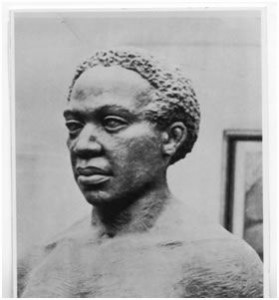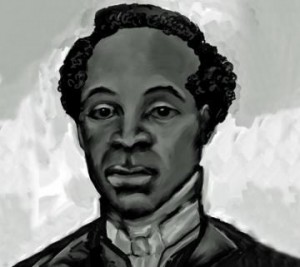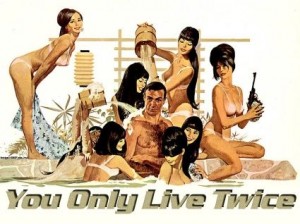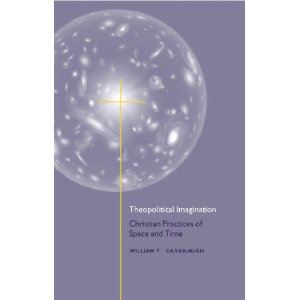I’m taking a break from James Bond and Samuel Sharpe to ask some election season questions:
Is the college where I work, Malone University, hopelessly conservative because it is, after all, largely evangelical and requires its professors to abide by a statement of faith? Or is it hopelessly liberal because it does, after all, have a tendency to employ pointy-headed professors?
Yeah, I get it from both sides.
For instance, a few months ago, I was invited to speak about presidential elections in American history at an event for clients of a financial services company. In my role as a history professor, I made a few modest historical observations.
I was paired with another speaker who had worked on Capitol Hill. He essentially laid out possible odds for which party might win the White House and the houses of Congress. Although he was introduced as a former congressional staffer, the audience was not told that he had worked for Democratic members of Congress.
What I found most interesting was the reaction from the audience. We both received a range of questions, but a few people singled me out for special attention on one issue. One woman came up afterwards and asked me what party I supported. Even though I told her I considered myself an independent, she did not really believe me because, as she said, liberalism was so rampant among college professors. Several other audience members made comments indicating that they had similar assumptions about my political commitments.
The other speaker, the bona fide blue-state Democrat, did not receive similar comments.
Now, I had tried to be studiously non-partisan. I had given a Republican and a Democrat example from history for every point I made. I had suggested that audience members ought to find a friend who supports the opposing candidate and have breakfast with them once a week so that they could hear different viewpoints and discuss them in a civil manner. But it was apparent that some of the conservative members of the audience still looked on me with suspicion because I am, after all, a pointy-headed professor.
Then yesterday I read an Atlantic blog by Conor Friedersdorf that described “epistemic closure.” This refers, in essence, to people who get all their information about the world from institutions promoting the same worldview. These folk never encounter opposing viewpoints. In Friedersdorf’s estimation, conservatives are particularly guilty of this type of close-mindedness and evangelical colleges are part of the problem. “It’s now theoretically possible to go from evangelical homeschooling to a conservative college where debating abortion is verboten,” he wrote, “to a job at a conservative think tank, reached via a talk-radio-filled commute.”
To be fair to Friedersdorf, he is primarily discussing the role of conservative media. However, his argument is based upon the claim that conservatives have built cradle-to-grave institutions that are closed off from intellectual diversity. I am, it appears, part of this epistemic closure. I do not know if he would believe me if I told him I am an independent.
This is the world I live in. Greg Miller, a colleague of mine, says that evangelical professors sit on a window sill high up in the ivory tower. And all the non-evangelical academics in the ivory tower are yelling at us, “jump, jump!” Meanwhile, down below on the ground, are the members of our evangelical churches. They are looking up at us teetering on the window sill of the ivory tower. And they are yelling, “jump, jump!”
So are evangelical colleges close-minded? There is data to suggest that evangelical colleges are more conservative than other types of institutions. Inside Higher Ed reported yesterday that the UCLA Higher Education Research Institute released a study that ranks “private, 4-year, other religious” (meaning non-Catholic) colleges as the most conservative of any kind of institution. (The other categories are “public universities, private universities, public 4-year colleges, private 4-year non-sectarian colleges, and private Catholic 4-year colleges). I don’t know what percentage of evangelical colleges make up the category of “private, 4-year, other religious” colleges, but since Catholic and non-sectarian colleges fall under different categories, it has to be a large number. At any rate, it strongly suggests that evangelical colleges are more conservative than other kinds of institutions.
But does that make evangelical colleges close-minded and guilty of “epistemic closure?”
Over at the “Pietist Schoolman” blog, Chris Gehrz, a history professor at Bethel University in Minnesota addressed this question a couple of weeks ago. He gave evidence and arguments for why institutions in the Council for Christian Colleges and Universities do not fit into a category of “right-wing monoliths.” This fits with my impression of Malone, where I know we have professors from a range of political positions (though I do not know exact numbers.) Gehrz wrote that “I feel like I’ve heard as many complaints from conservative professors about the lack of right-wing speakers on campus as vice-versa, but I’d also say that most of us are not all that politically partisan and that our students probably aren’t all that certain of how we vote.”
Gehrz admitted, humbly, that this may be wishful thinking. He pointed out that we need more studies on these sorts of things. I agree.
So here is the interesting part of the recent UCLA study: one could conclude that evangelical colleges (or to be more accurate, “private, 4-year, other religious” colleges) are the most politically diverse of all types of institutions of higher education.
Check out the numbers. In the study, 23% of the professors at these colleges consider themselves to be politically “conservative” and 0.6% consider themselves to be “far right.” That is 10% higher than any other kind of institution in higher education, which is what makes them conservative, in the eyes of many academics. But we also find that 29.1 % consider themselves “middle of the road.” And the study reports that 40% of the professors at these institutions consider themselves “liberal” and 7.4% consider themselves to be “far left.” This is what makes them liberal, in the eyes of many ordinary evangelicals.
In my eyes, this is what makes them politically diverse.
Or, at least, the most politically diverse kind of college you can find.
Yes, the UCLA study is only a small glimpse into a complicated issue. For instance, I do not know what institutions get included in the “private, 4-year, religious” category. And one will need to look more fully at individual evangelical colleges to better determine the extent to which they are guilty of “epistemic closure,” though one should ask the exact same questions about colleges that have large percentages of liberal professors. The point is that the UCLA study carries more weight than perceptions, which is all that most people have to base their conclusions on at this point. At the very least, the study suggests that “private, 4-year, other religious” colleges are better than other educational institutions at hiring professors from a range of political positions. If, however, you want an education that has the narrowest range of political views, you should attend a public university or a private, non-sectarian, 4-year college.
Better yet, choose an evangelical college for its ability to integrate faith and learning.
“Ah, ha!” many academics will say. That is exactly what makes evangelical colleges guilty of indoctrination, close-mindedness and “epistemic closure.”
I disagree. But I’d be happy to talk about it and listen to opposing viewpoints.








